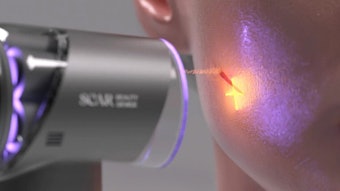
Members of Northwestern Memorial Hospital’s Division of Plastic Surgery have developed a proposed set of guidelines for plastic surgeons relating to the use of patient videos on social media. For “The Ethics of Sharing Plastic Surgery Videos on Social Media: Systematic Literature Review, Ethical Analysis, and Proposed Guidelines,”, published in the October 2017 issue of Plastic & Reconstructive Surgery, Robert G. Dorfman, MSc; Elbert E. Vaca, MD; Neil A. Fine, MD; and Clark F. Schierle, MD, PhD, reviewed the four principles of medical ethics—respect for autonomy of the patient; beneficence, or promoting what is best for the patient; nonmaleficence, also known as “do no harm”; and justice—as they relate to the public sharing of patient surgeries on social media. In an effort to help medical aesthetic providers uphold these ethics in today’s climate of practice marketing and online media, they proposed the following guidelines for surgeons to follow:
1. Ask the patients whether or not they would like to have their operations videotaped and broadcasted on social media channels and obtain written consent should they choose to do so. Patient identifiers should be censored, including face, tattoos, identifying birthmarks, and demographic information. Should the patient agree to include his or her face or other protected health information, an additional provision on the consent document should be initialed. Full disclosure must be made, especially concerning the details of which exact social media platforms the video will be featured on. The patient may withdraw this consent at any time. Patients younger than 18 years should be treated as minors, in which case parental consent must be obtained unless the minor is deemed emancipated by court decision. It is advisable that plastic surgeons seek advice from a legal professional when drafting the consent form.
2. Let the patients know that they have the right to refuse, and that this refusal will in no way affect the quality of care they will receive. Plastic surgeons should never force or intimidate a patient into participating. Instruct the patients that they have the right to change their mind at any time and can always request to have their video deleted by the plastic surgeon.
3. Inform the patients that their images may be downloaded, saved, shared, or even manipulated by other social media users. Patients should further be warned that if they wish to have broadcasted media deleted, it will be removed from the plastic surgeon’s page(s) but other copies may exist, as these could have been obtained by other users. Furthermore, the patients must be informed that the terms of use policy of each social media platform varies and periodically changes and they would have to refer to the individual media platform for precise details.
4. Uphold standards of professionalism as advocated by the American Society of Plastic Surgeons Code of Ethics.
5. To avoid possible increases in operative time, the plastic surgeon may wish to hire a designated and trained videographer. The plastic surgeon is accountable for overseeing all social media and marketing within their practice, and educating staff about maintaining a high level of professionalism and integrity.
For more information on obtaining patient consent for social media content, see Informed Consent for Online Media.











